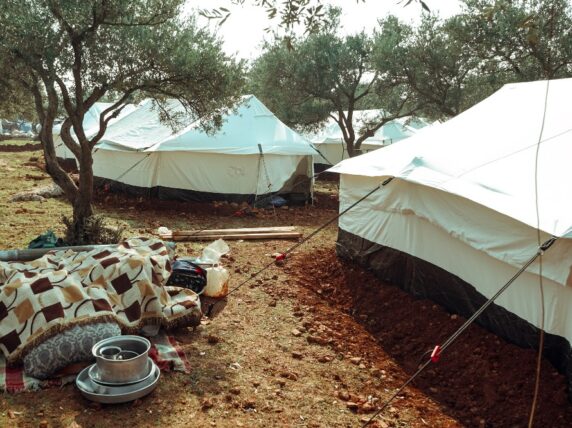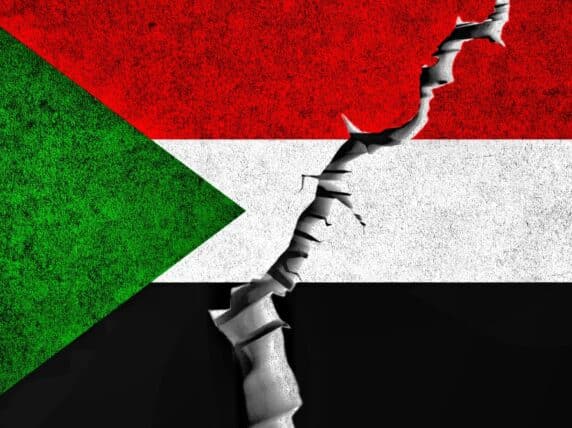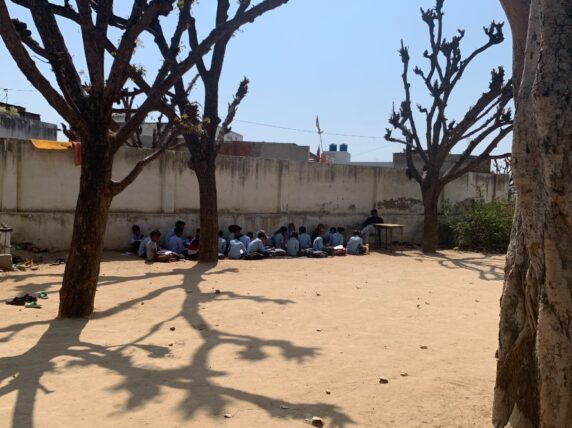The current humanitarian situation in Israel and Occupied Palestinian Territory – what we know so far
Following the surprise attack by Hamas on Israel next to the Gaza strip on the morning of Saturday 8 October, conflict has subsequently broken out between Israel and Hamas in Gaza and along the West Bank.
At the time of writing more than 1,400 people have reportedly been killed in Israel since the Saturday attacks, over 4,229 wounded and over 200 people taken hostage according to the country’s authorities, while the World Health Organisation estimates that Israeli retaliatory attacks have killed over 5,000 Palestinians and wounded more than 15,237. As of Monday 23 October, the number of UN staff members working with the Palestine refugee agency UNRWA who have been killed has reached 35, according to the latest situation report.
As the conflict intensifies, and the humanitarian need rises, these numbers are likely to increase.
Humanitarian assistance reaching civilians
Civilians in the region are currently enduring rocket attacks and airstrikes, and a grave humanitarian crisis is developing in the Gaza strip with water, food and power supplies cut off. The United Nations humanitarian office said on Tuesday 10 October that nearly 200,000 people, or a tenth of the population, have fled their homes in Gaza since the start of hostilities.
U.N. Secretary-General António Guterres has expressed concern about the humanitarian needs in the Occupied Palestinian Territory and, like the UK, France, Germany, Italy and the USA, condemned the killings and hostage-taking of Israeli civilians by Hamas. He also appealed to the Israeli government and Hamas militants to allow delivery of lifesaving humanitarian assistance into Gaza stating:
“The humanitarian situation in Gaza was extremely dire before these hostilities; now it will only deteriorate exponentially. Medical equipment, food, fuel and other humanitarian supplies are desperately needed, along with access for humanitarian personnel. Relief and entry of essential supplies into Gaza must be facilitated – and the UN will continue efforts to provide aid to respond to these needs.”
The current blockade by Israeli forces and restrictions on passage to Egypt is preventing Palestinian civilians from leaving Gaza and food, fuel and electricity from reaching the territory. On, Wednesday 11 October, the US discussed brokering a safe passage corridor for civilians with Israel and Egypt, while the Red Cross pleaded for fuel to be allowed in to prevent hospitals from being further overwhelmed.
On Tuesday 17 October, the UK’s development minister Andrew Mitchell said that Israel has a “moral and practical responsibility” to allow humanitarian aid into Gaza.
During the night of Tuesday 17 October, the bombing of al-Ahli al-Arabi Hospital in Northern Gaza has killed a estimated 500 people.
On Saturday 21 October an initial convoy of 20 trucks of humanitarian aid entered Gaza with 14 more trucks passing through the Rafah crossing with Egypt on Sunday. On Monday 23 October a spokesperson for the UN World Food Programme (WFP) warned that despite this, the situation is still catastrophic and the shortage of fuel in Gaza is a major concern. Without it, hospitals and bakeries could simply grind to a halt.
How INGOs are responding
Many INGOs already had a presence in Occupied Palestinian Territory, with organisations such as Christian Aid first providing humanitarian relief to Palestinian refugees in the 1950s. Christian Aid currently has established partners in Gaza who are ready to respond with medical relief and community-led initiatives such as food, shelter, sanitation and protection.
William Bell, Christian Aid’s Head of Middle East Policy & Advocacy said:
Every war is a defeat. We urge both sides to abide by international law, to protect innocent civilians, and agree to an immediate de-escalation. The people in Gaza were already on their knees. Half of the population are children and have known nothing but blockade and conflict.
Islamic Relief has a team in Gaza and is responding by supporting hospitals and health facilities as well as vulnerable displaced families. Islamic Relief staff in Gaza have described the situation as being unlike anything they’ve ever seen. The INGO has launched an emergency appeal.
Islamic Relief has said:
Islamic Relief is appalled by recent reports of deaths and violence. We continue to strongly condemn any and all violence against civilians and plead with all parties to exercise restraint to avoid further civilian casualties.
On Sunday 9 October, CARE International UK released a statement:
Civilians always pay the highest price during conflict, with women, children, and the elderly suffering the most. Protecting civilians must now be the top priority for all parties involved. CARE condemns violence against civilians by all sides and calls on all parties to the conflict to abide by their obligations under international humanitarian law, including respecting the principles of humanity, proportionality, and distinction at all times. All parties to the conflict must refrain from attacking civilians and civilian objects and must ensure and facilitate access of those in need to humanitarian assistance. CARE stands ready to respond to humanitarian needs and is currently preparing an urgent medical intervention, including in response to the specific needs of women and girls.
On the same day Nadim Zaghloul, ActionAid Palestine Country Director, also said:
The situation inside Gaza is dire as homes and civilians remain the indiscriminate targets of continuous bombing. Our colleagues have fled their homes and are currently using hospitals as shelters. Air raids continue throughout the day and night and our partners are telling us that entire families have lost their lives. We’re only a few days into the crisis, but the unprecedented scale of hostilities threatens a humanitarian emergency on an unimaginable scale, even for a region all too familiar with disaster. With a ‘total blockade’ announced today in Gaza, over two million people will be plunged even further into crisis and completely cut off from food, electricity, and fuel. We are urgently calling for an end to the violence and to the safe passage of humanitarian aid to those that need it the most.
International Planned Parenthood Federation (IPPF)’s Member Association, the Palestinian Family Planning and Protection Association (PFPPA), had a crucial health clinic destroyed in an Israeli air strike on 8 October. An appeal has been launched to help them relocate. Read statements from IPPF Director-General Dr Alvaro Bermejo, and Executive Director of the Palestinian Family Planning and Protection Association, Ammal Awadallah.
Mercy Corps, Oxfam, Norwegian Refugee Council, CAFOD, Human Appeal, Action For Humanity, HelpAge International, Humanity & Inclusion, Embrace the Middle East, Samaritan’s Purse and World Vision are all among those actively working in, or have recently worked in some form, in Occupied Palestinian Territory.
On Wednesday 18 October, a number of NGOs, lawyers, UK MPs, have called for an urgent ceasefire in the region including over 70 UK INGOs.
While this blog is updating facts and figures as and when, please refer to Relief Web for the most recent humanitarian updates for the Occupied Palestinian Territory and Israel as the situation unfolds.
This blog was lasted updated on 24 October 2023.
Category
News & Views



